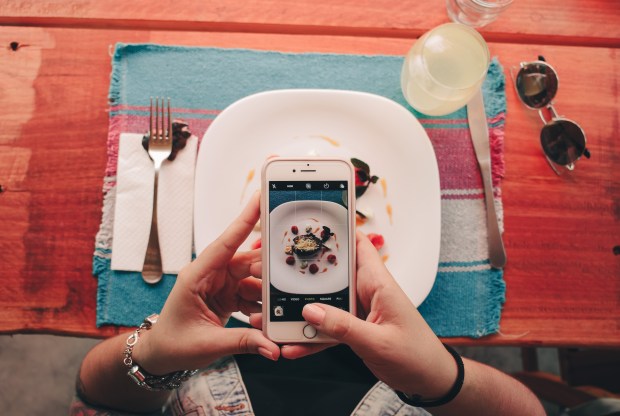
Trending diets are drastically spreading throughout social media accounts.
An article on Food and Wine discussed the negative aspects of these wide spread diets. Many of these diets cut out gluten, dairy, meat, etc out of peoples lifestyles, however this doesn’t always result in a healthy body. This article touches on a scarier aspect that many consumers do not realize, the effect these diets have on the millennial brain.
Teenagers have phones, laptops, and Ipads, containing unlimited access to the web. The endless amount of information on the internet can overpower a young persons brain. These diets and the people supporting them are huge influencers on early set bad habits.
A study was conducted on the topic of dieting which found that, “four in ten 18 to 24-year- olds have tried dieting. 20 percent of them either had either cut out or restricted their intake of dairy, severely limiting their calcium intake.” This article later went to discuss that most of the people within this age group get their diet information from social media accounts.
This all boils down to credibility. Dieters have been around forever, however with the increase in social media, the amount of health foods accounts has spiked but how do we know which ones actually work? Well, everyone has different goals, body types, and personalities which means that conducting your own research should be required prior to starting a strict diet. This applies to young people in their late teens and early twenties. When you’re young, allergies and health issues still have not been shown which can be scary when cutting many important ingredients out of your diet or when implementing different vitamins into your diet.
Consulting a professional nutritionist prior to taking drastic measures like discussed in Food and Wine, is the most important part of dieting. There are many Instagram accounts that have beautiful pictures of foods that don’t contain certain ingredients, however they lack details about why people are eating this way or why gluten or dairy is not good for a persons diet.
In order to recognize a reliable and credible source, it is important to research the blogger or dieters educational background. Pretty images can get in the way of realizing what information is actually accurate and beneficial. Often times information is passed down along a food chain without being peer reviewed. The social media world can be frightening and overwhelming with how much information it contains.
The lifestyle of dieting is intriguing when the posts are aesthetically pleasing and the dieter is attractive and friendly to their followers. Diets will not make you look exactly like the person creating them, do background checks and consult a professional before getting lost in the social media diet world.


 10 of the top food trends of 2018 according to
10 of the top food trends of 2018 according to
 Picture @ Foreign Cinema by me
Picture @ Foreign Cinema by me
 Food social media accounts are constantly posting about their favorite foods and restaurants but what the social media lacks is valuable critiques on restaurants. When I scroll through my Instagram feed my mouth waters when I see a beautiful picture of some sort of extravagant dish but I am always still curious about places to avoid, especially when I am traveling.
Food social media accounts are constantly posting about their favorite foods and restaurants but what the social media lacks is valuable critiques on restaurants. When I scroll through my Instagram feed my mouth waters when I see a beautiful picture of some sort of extravagant dish but I am always still curious about places to avoid, especially when I am traveling.
 Follow @anthonybourdain on Instagram and @Bourdain on Twitter.
Follow @anthonybourdain on Instagram and @Bourdain on Twitter.
